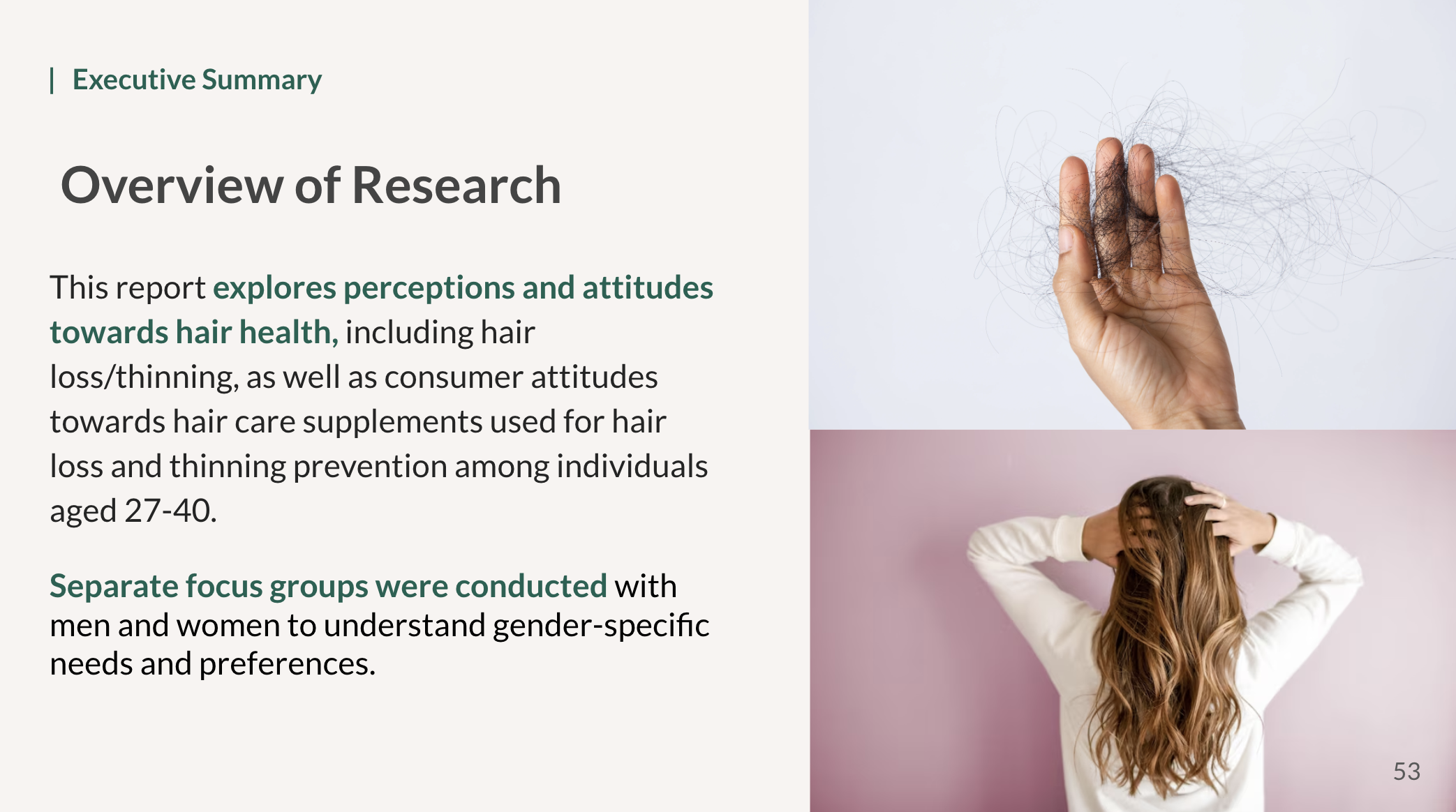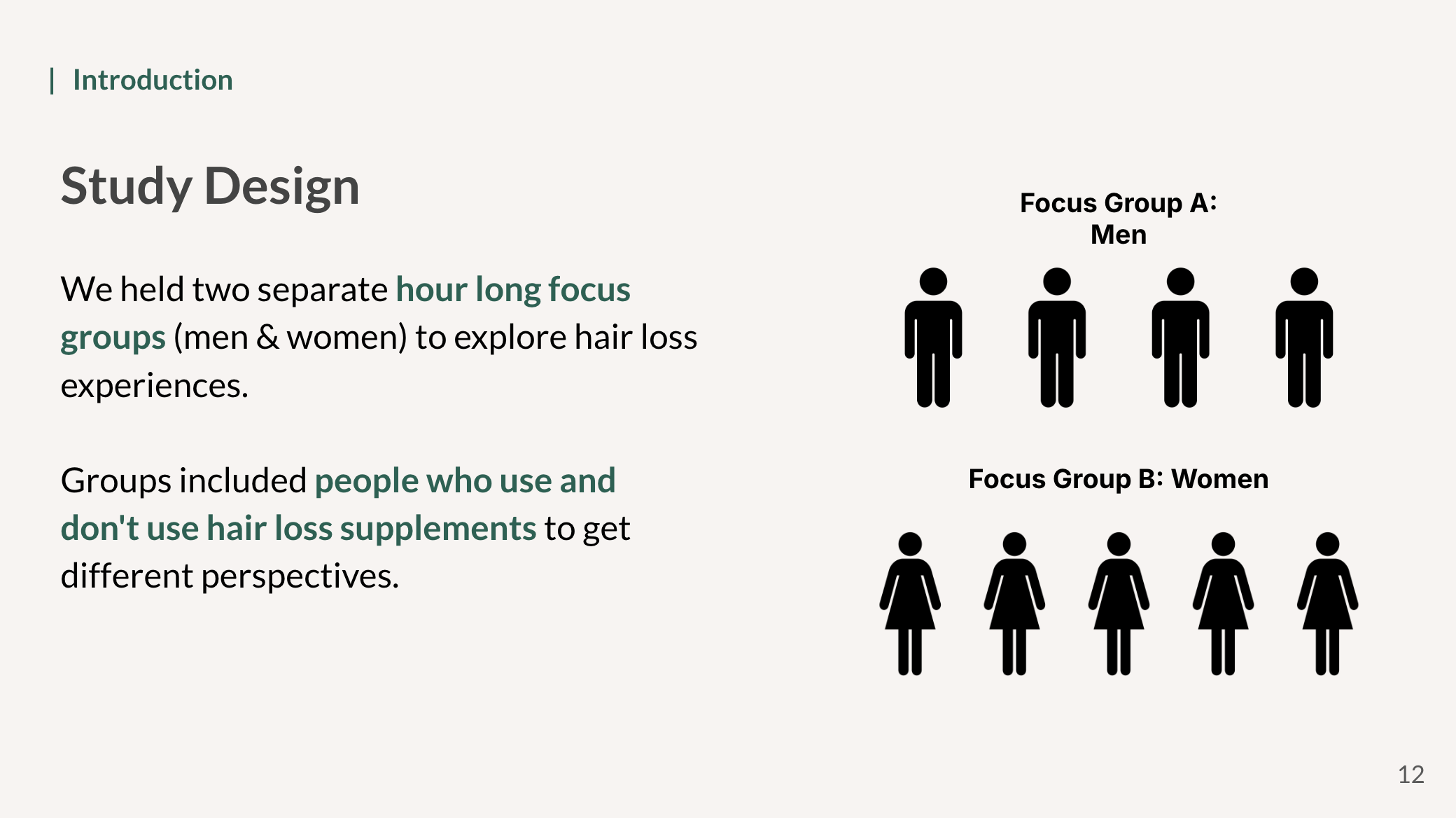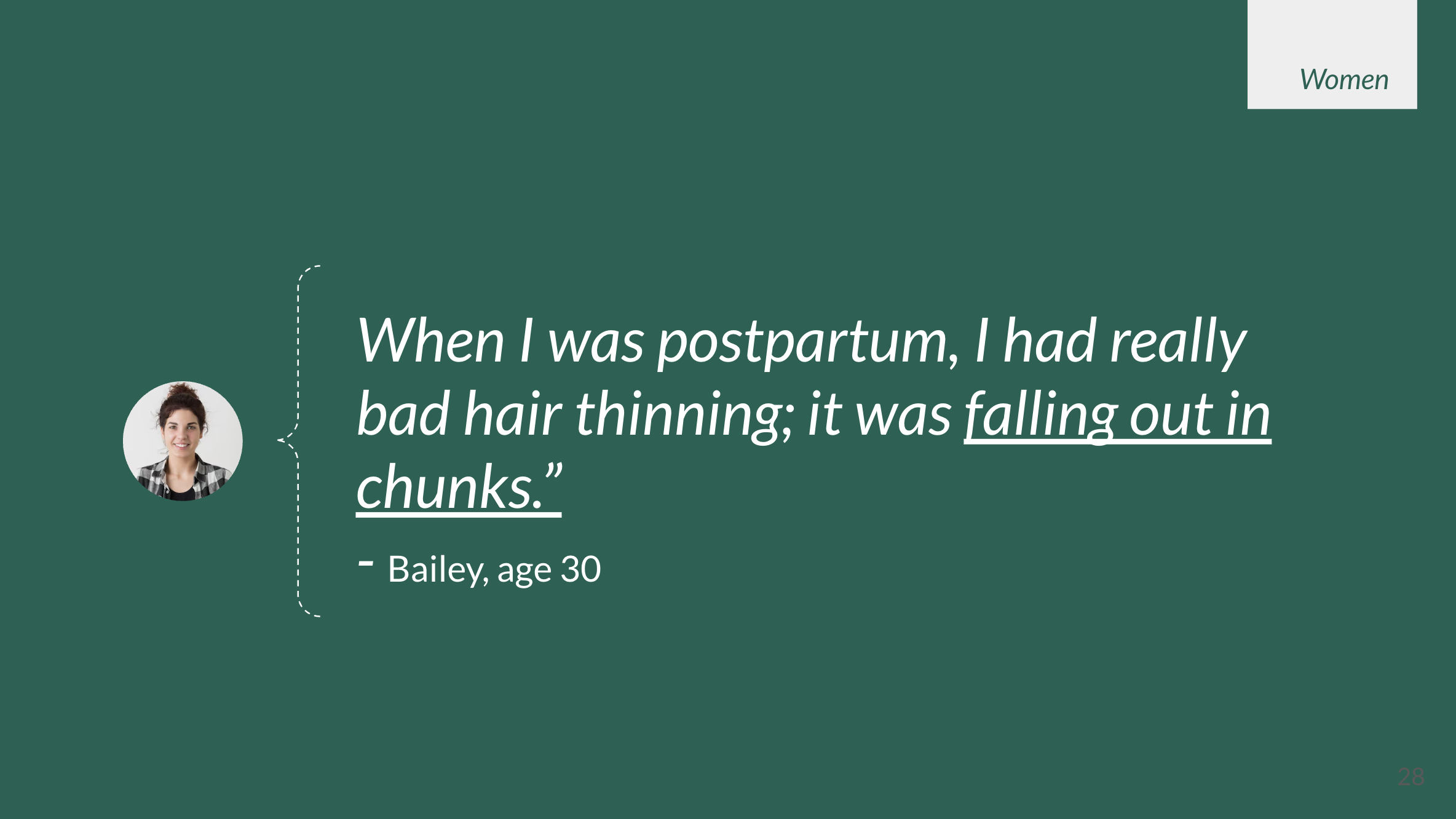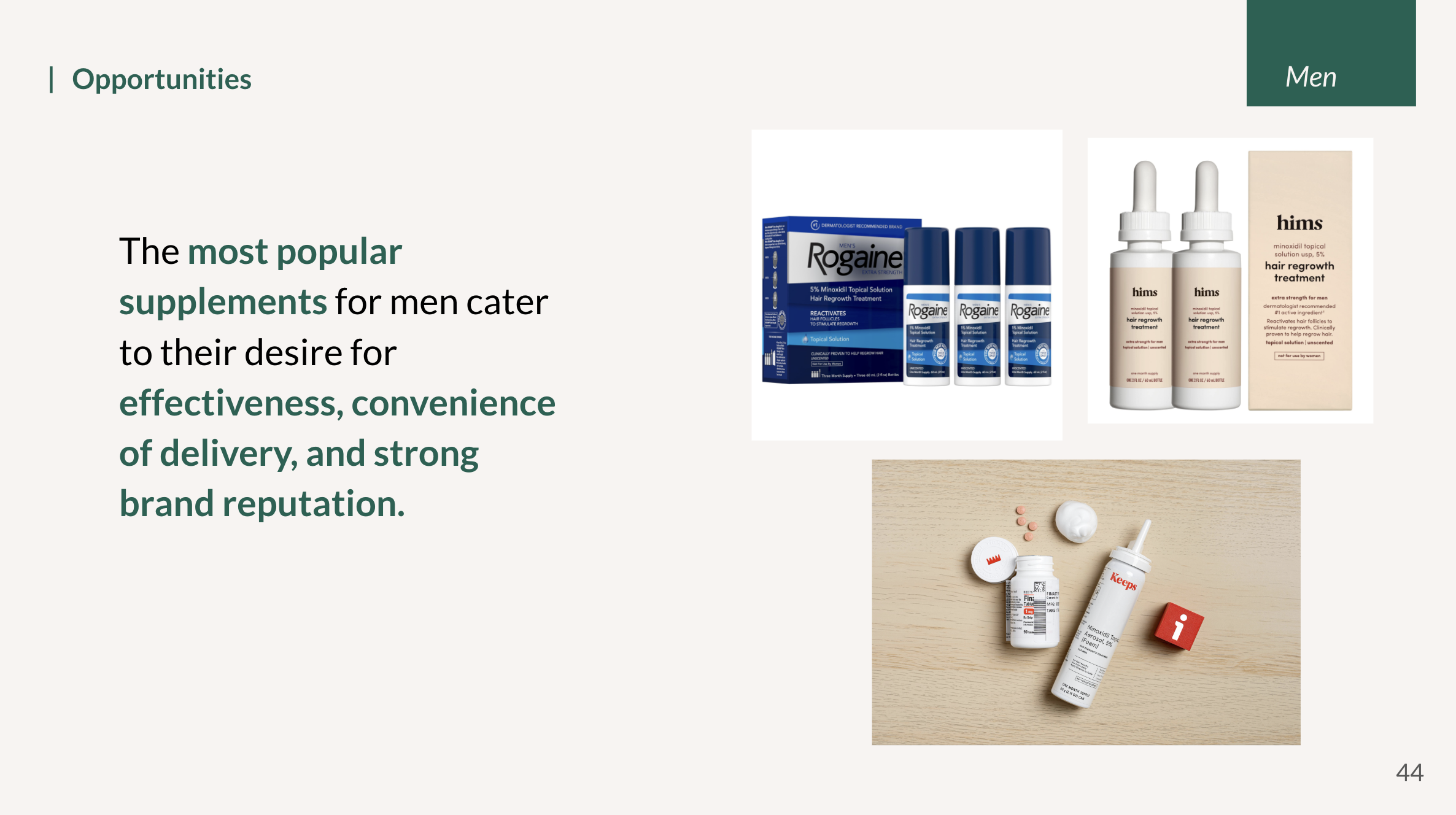Destigmatizing hair loss for all genders.
Hair Care Study

Context
SVA Masters in Branding, Design and Market Research Course
Led by Dr. Dan Formosa and Natalia Formosa
Role
Strategist; Researcher; Survey Designer; Facilitator; Data Analyst
Team
Kelly McPharlin
Gloria Biggers
Sarah Fassberg
Click here to view the complete strategy deck.
Challenge
The global hair loss industry is estimated to reach a market value of $11.8 billion by 2026. The key research objectives were to uncover key differences in how men and women perceive hair loss, societal beauty standards, and the role of hair in appearance and self-confidence and understand the attitudes towards and usage of hair care supplements used for hair loss/thinning prevention among individuals aged 27-40. We conducted a qualitative study, beginning with a survey and following up with two one-hour focus groups with men and women respectively.
How can new and existing hair care companies develop and market hair loss products while the issue continues to carry stigma for both men and women?
Process
Competitive audit
Consumer research
Survey design
Focus group design + facilitation
Data analysis
Concepting and presentation
Research Analysis
The report explores perceptions and attitudes towards hair health. Men and women both experience high rates of hair loss, but struggle to vocalize the issue due to stigma. In our research, we discovered that men associate hair with masculinity, and are therefore more likely to use hair loss supplements as a preventative measure, while women experience high levels of hair loss insecurity postpartum.
Finding #1:
Hair loss is a sensitive topic for men due to its strong connection to perceptions of masculinity.
Women are more open and vulnerable when it comes to hair loss.
Finding #2:
Men are more likely to use hair loss supplements as a long-term preventative measure
Women are more likely to use supplements in response to postpartum hair loss.
Finding #3:
Men who use hair supplements prioritize convenience and effectiveness
Women prioritize overall health, including hair health.
Recommendations
We recommend hair care companies develop and market supplements based on the varying consumer attitudes towards hair loss prevention and mitigation. Men value convenience and efficacy, while women prefer solutions that are comprehensive, all-natural, and doctor-approved.


“If you could tell me I could go back
to looking like I did when I was 18, money would be no object."
— Charles, 30





